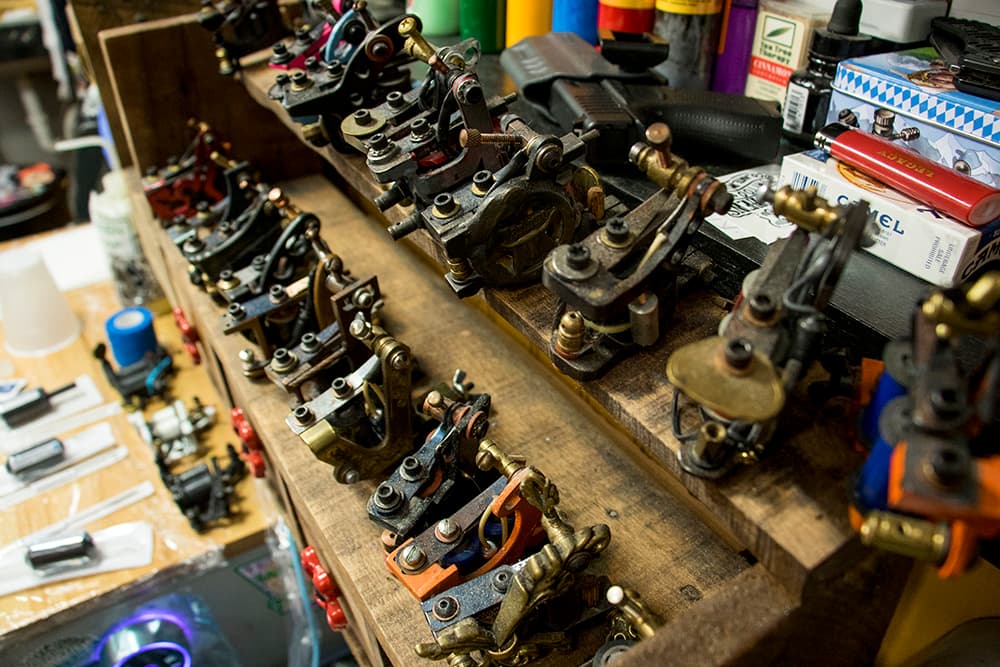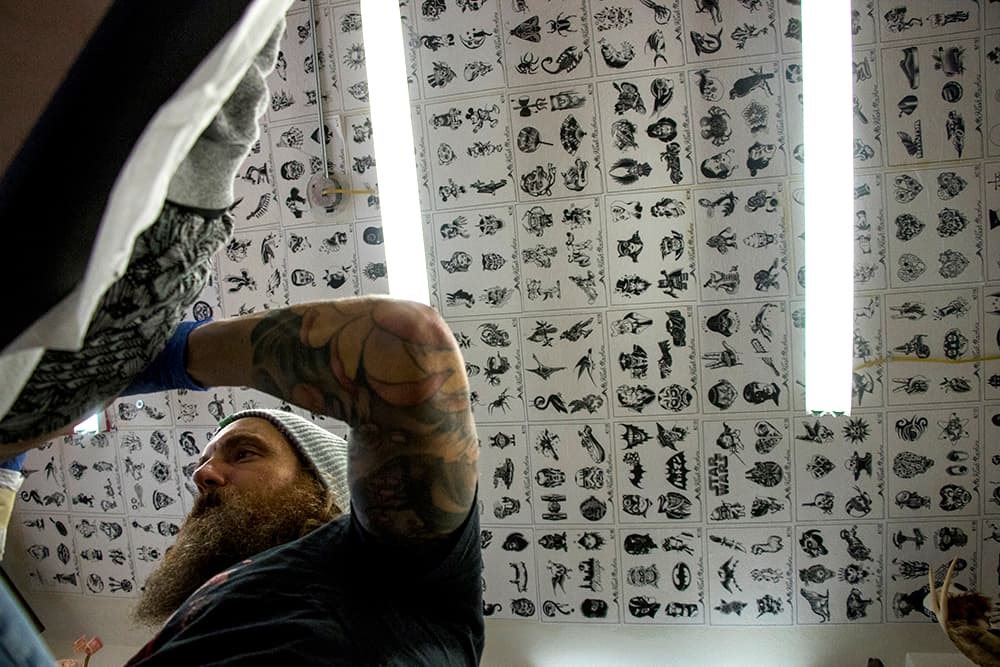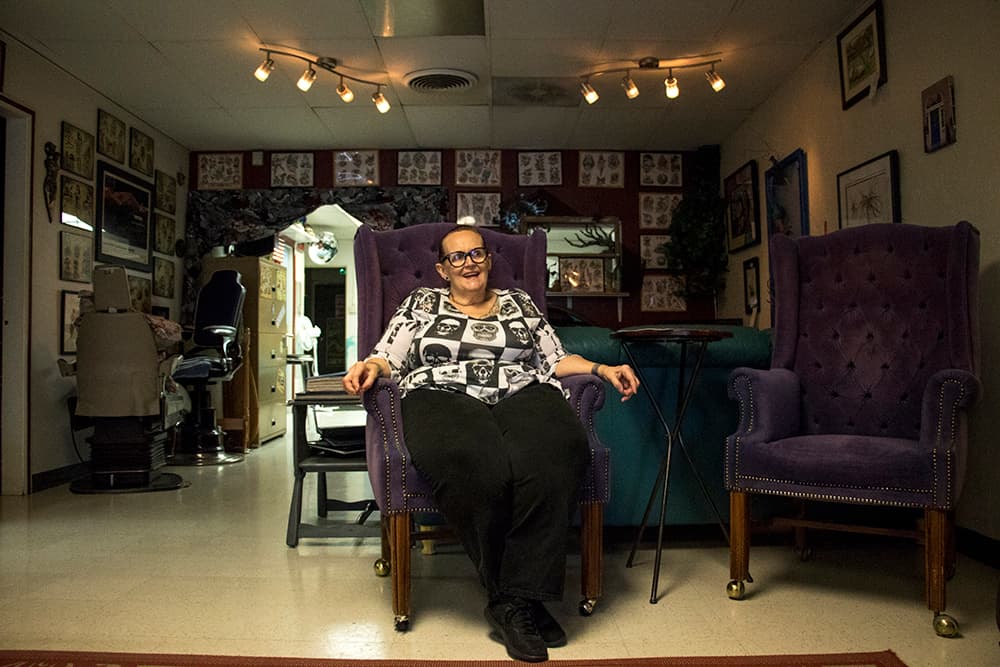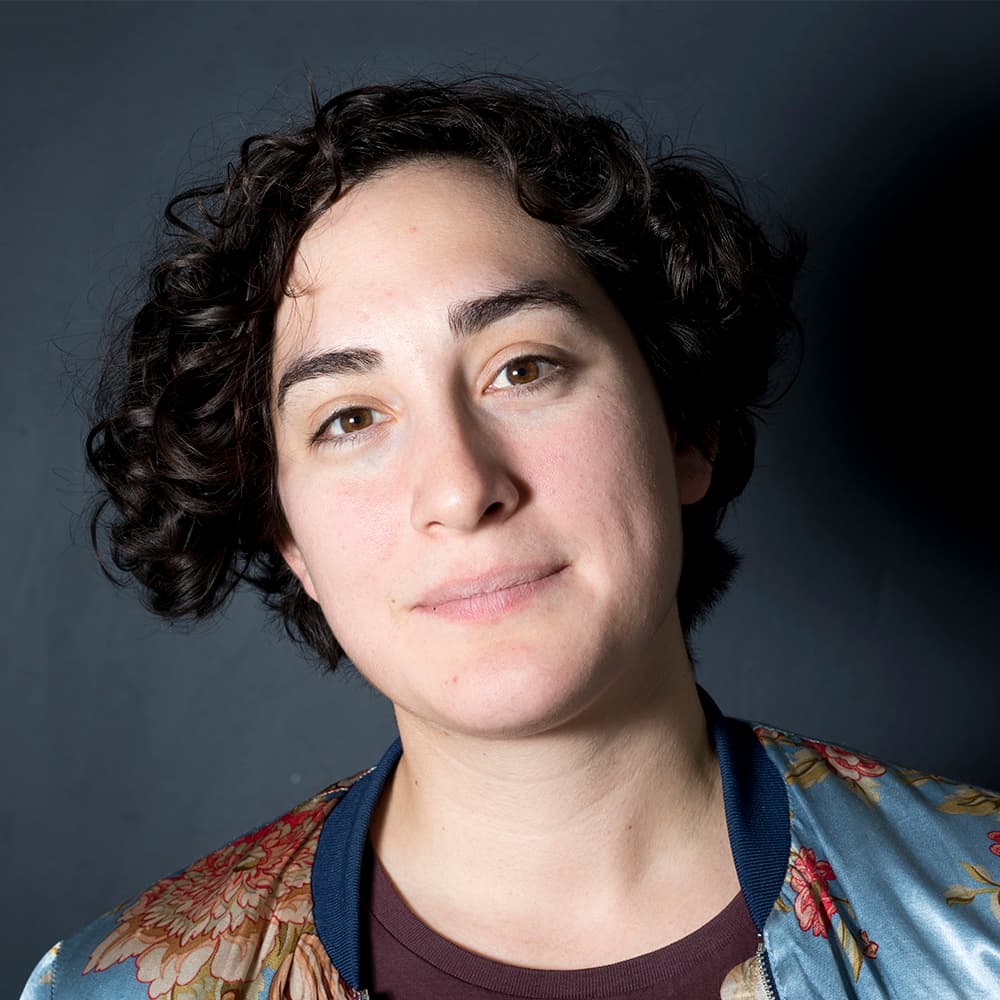
Back in 1956, if you wanted to get a professional tattoo in Denver, there was only one option -- William "Frenchie" Neely's shop near Colfax and Speer.
The location was a "deliberate move to avoid rough, tough clientele," the Denver Post reported at the time. Over the next 50 years, tattoo shops proliferated across Colfax, but they became associated with the rough clientele Neely hoped to avoid.
Today, Colfax is still home to quite a few, but it's not the only place you can go -- Broadway actually has just as many licensed tattoo shops, according to the city's data. Colfax will always be the birthplace of tattooing in Colorado, but the tradition has spread well beyond.
Neely, who then claimed to be the only full-time tattoo artist in the state, worked on Colfax until 1960, when he moved his business to 281 South Pearl.
Turns out that was as good a time as any to leave the area. By 1968, Denver had adopted the Skyline Urban Renewal Project, which eventually demolished 30 blocks of downtown. At that time, downtown was home to lots of adult businesses, and Neely's shop would have been considered one of them.
Many of the displaced businesses ended up moving to Colfax, the nearest location where adult businesses were allowed. (Again, tattoo shops were considered adult businesses.)

By 1978, there were four tattoo shops along Colfax Avenue. This was enough for the Capitol Hill newsletter to declare that tattoos were officially "big business."
These days, only one of them is still tattooing -- End of Days, then known as the Emporium of Design, at 2024 E. Colfax. Founders Paul Ullerich and Dennis "Sugar Bear" Lovold bought what used to be "Ye Old Tattoo Shop," says EOD's Frank "Wolfman" Speaker.
Ullerich and SugarBear took the shop from a "pit" with a flooded basement to the place where "anybody who's anybody" in Denver started tattooing, Speaker said.
For a 19-year-old graduate from Colorado Art Institute, like Speaker, the Colfax atmosphere was a little unnerving.
"After a while, you really grow to love it down here. There's never a dull moment on Colfax for sure," he said. "After 35 years, this is more home to me than my own home."
Still, the Colfax environment isn't an asset, Speaker admits. The location was more a function of necessity, since places to open an adult business were limited. But because of that, a unique culture has arisen among Colfax tattoo artists.
"There's a certain tradition -- people that have tattooed on Colfax and then go and open their own shop, they kind of want to stay on Colfax because after a while, you really grow to love it down here," he said.
That's certainly true for Fingers, who runs FreshMade Tattoos and Piercings at 6640 East Colfax Ave.
"It takes a special breed to run a shop on East Colfax. It takes a completely different breed to be able to work on Colfax and deal with those people, to deal with the slow days," Fingers said.
Like EOD, FreshMade Tattoos and Piercings carries the legacy of its old owners. It goes back to when a shop called Mr. Tank’s Tattoos and Piercing operated in the location.
A decade ago, Josh Trobaugh opened Mr. Tank’s Tattoos and Piercing, but was murdered less than six months later. A colleague of Trobaugh's then reopened the shop under the same name.
"It took five years before this spot even had clientele. He could've changed the name from Mr. Tank's Tattoos to something else, but he didn't do that. He kept that man's dream alive," Fingers said.
Still, it's that exact type of story that's prompted other tattoo artists to open up shop elsewhere.

"To me, it makes no difference whether [my shop] was on Broadway or Colfax, but when I was looking to open a place, I purposefully did not look on Colfax because I knew my clientele," said Beth "Sister Bear" Lovold, who owns The Blue Door Tattoo at 562 S. Broadway.
Lovold's no pushover. Dennis Lovold's sister, she started her tattooing apprenticeship at EOD in the early 1980s, a time when there weren't many female tattooists.
"Some of the guys said, 'Can I have a guy do my tattoo?' I'd say, 'Well, you have a woman, and you might like it,'" she said.
Lovold worked down on West Colfax for a while too, but when it was time to open her own shop, she opted to make her customers comfortable.
"I do areola repigmentation for breast cancer patients and any other kind of medical tattooing that doctors or clients deem necessary, and it's more comfortable for them not to go to Colfax just because Colfax has such a bad rap."
Same for Alicia Cardenas, owner of Sol Tribe Tattoo, 56 Broadway. She also worked near Colfax for a while but found that people were scared of the street.
"I still have friends that have shops on Colfax, and they do great," Cardenas said. "The customer is different."
As tattoos become more and more mainstream, environments like those on South Broadway are more accessible for people to walk into.
"I know a lot of places that wouldn't want to ever move off Colfax for the very same exact reason," Cardenas said." They want you to have to have those rites of passage in a sense, you know, to come down to Colfax and walk in the door and be like, 'This is what I want,' you know?"











